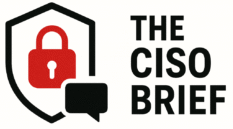Summary Points
-
Data Breach Uncovered: Columbia University suffered a significant network breach in May 2025, impacting the sensitive personal, financial, and health information of nearly 870,000 individuals, including students and employees.
-
Nature and Scope of Data: The stolen information includes names, Social Security numbers, contact details, academic history, and financial aid information, with no evidence that patient records from the medical center were accessed.
-
Breach Discovery: The breach was identified following a systems outage on June 24 and was confirmed by the university recently, alongside claims from the hacker of having stolen 460 gigabytes of data.
- Support for Affected Individuals: Columbia University is providing two years of free credit monitoring and identity theft restoration services to impacted individuals, although there are currently no indications of misuse of the stolen data.
Problem Explained
In May 2025, a sophisticated cyber breach executed by an unidentified threat actor compromised the sensitive personal, financial, and health information of approximately 870,000 individuals associated with Columbia University, including current and former students, faculty, and applicants. The incident came to light following a system outage on June 24, which prompted the university to engage external cybersecurity experts to investigate the breach. In a notification filed with Maine’s Attorney General on August 7, Columbia reported the unauthorized access, stating that the malware had successfully exfiltrated significant data amounting to around 460 gigabytes, although they currently lack evidence of misuse related to identity theft or fraud.
Columbia University, one of the nation’s prestigious Ivy League institutions with a robust operational framework and a $6.6 billion budget, took immediate steps to inform those affected. The university outlined the compromised data in letters, specifying that it included personal identifiers such as names, Social Security numbers, and comprehensive records encompassing academic histories and health-related information provided by individuals during their association with the institution. In response to the breach, Columbia has offered two years of complimentary credit monitoring and identity theft restoration services through Kroll, aiming to mitigate potential repercussions for those whose information was at risk.
Risks Involved
The data breach at Columbia University, which compromised sensitive personal, financial, and health information for nearly 870,000 individuals, poses significant risks not only to the affected parties but also to surrounding businesses, users, and organizations. First, the breach could instigate a pervasive wave of identity theft and fraud, as stolen data can be exploited by malicious actors, thereby eroding trust in the systems that safeguard sensitive information across various sectors. Organizations that collaborate with or rely on Columbia for academic partnerships, research funding, or student recruitment may face reputational damage, as stakeholders question their own data security protocols and the integrity of shared networks. Furthermore, financial institutions and healthcare providers linked to affected individuals might experience increased compliance burdens and operational disruptions, necessitating enhanced security measures and potentially leading to costly litigation. As the reverberations of this breach extend outward, the cumulative financial and reputational damages could create a chilling effect on innovation and collaboration within the knowledge economy, highlighting the imperative need for robust cybersecurity frameworks across all sectors.
Possible Action Plan
In the wake of significant data breaches, swift and effective remediation is paramount to safeguard affected individuals’ information and maintain institutional integrity.
Mitigation Steps
- Immediate Notification: Inform impacted individuals with explicit details regarding the breach and potential risks.
- Credit Monitoring: Offer complimentary credit monitoring services to mitigate identity theft risks.
- Data Encryption: Enhance existing data encryption protocols to secure sensitive information.
- Vulnerability Assessment: Conduct thorough vulnerability assessments to identify and rectify security weaknesses.
- Incident Response Plan Review: Reevaluate and update incident response protocols based on lessons learned from the breach.
- Employee Training: Implement targeted training for staff on best practices for data protection and recognizing phishing attempts.
NIST CSF Guidance
The NIST Cybersecurity Framework (CSF) emphasizes a proactive approach to managing cyber risks. For organizations responding to data breaches, the relevant Special Publication to consult is NIST SP 800-61, focusing on Computer Security Incident Handling. This document provides guidelines for effectively managing incidents, ensuring a structured response to mitigate risks and restore operations efficiently.
Stay Ahead in Cybersecurity
Discover cutting-edge developments in Emerging Tech and industry Insights.
Learn more about global cybersecurity standards through the NIST Cybersecurity Framework.
Disclaimer: The information provided may not always be accurate or up to date. Please do your own research, as the cybersecurity landscape evolves rapidly. Intended for secondary references purposes only.
Cyberattacks-V1

